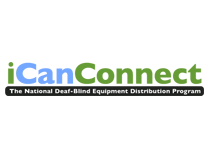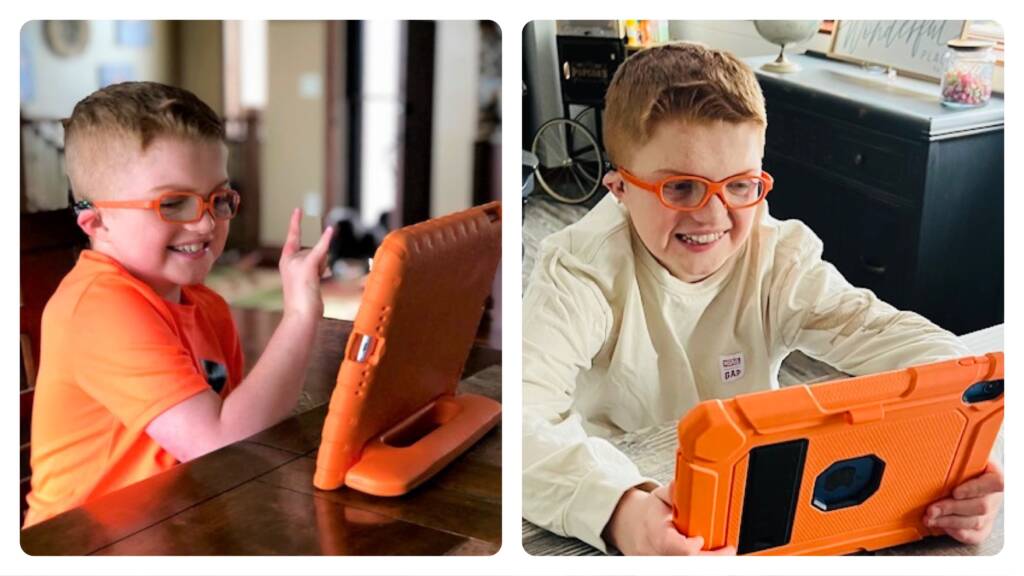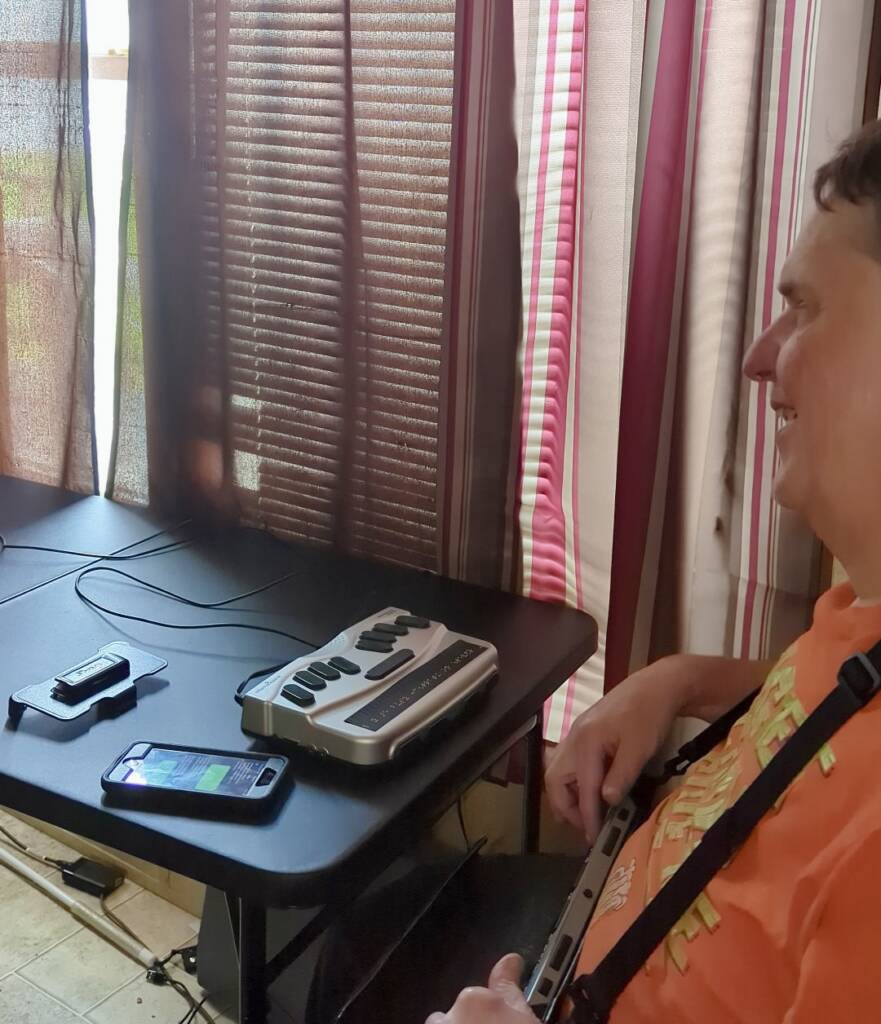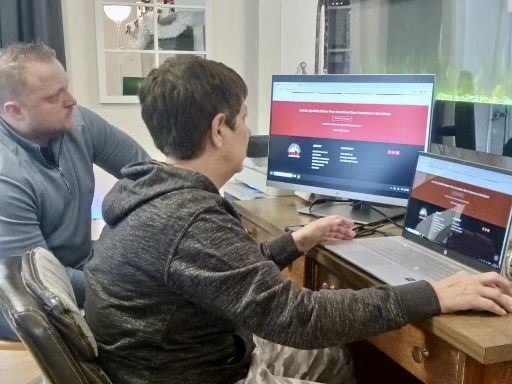“Anytime, anyone will let me speak, I’m gonna talk,” says Roger Frischenmeyer of Hutchinson, Kansas, and one of his favorite topics is communications technology and how it helps people with significant hearing and vision loss communicate and live more independent lives. He is well versed in the subject since he, himself, is blind.
“People with disabilities, in general, are significantly more isolated. With people who have hearing and vision loss, that isolation is even greater,” says Frischenmeyer.
The 48-year-old works as a trainer for the National Deaf-Blind Equipment Distribution Program, which is promoted nationally as iCanConnect and is known in Kansas as iKANConnect. The program provides modern distance communications tools and expert one-on-one training to people with combined hearing and vision loss. Devices such as smartphones and tablets – as well as specialized adaptive software, phone amplifiers and braille displays – at no cost to people who meet income guidelines.
“The program allows deaf-blind to be able to use iPhones, text, and connect in ways most of us do,” Frischenmeyer points out. “What it does is eliminate some of this isolation.”
Assistive Technology for Kansans administers iKanConnect. Program Coordinator Sheila Simmons says it helps “open doors so people who have significant vision and hearing disabilities can achieve their personal goals.”
“Anytime you can put technology in the hands of people where it can really change their lives,” exclaims Frischenmeyer. “It’s an amazing process.”
Frischenmeyer lost his eyesight to cancer when he was eight months old, but says his mother gave him a different perspective on life. Also blind, she would not allow him to use his vision loss as an excuse. “I knew I was in trouble if I said, ‘I can’t do that because I can’t see.’”
Frischenmeyer has dedicated his life to mentoring youth. Since graduating college, he’s worked at Prairie Independent Living Resource Center in Hutchinson, educating people about assistive technology and advocating for people who deaf and blind. He knows a lot about technology and believes it can make a difference in the life of any person who has lost hearing and vision.
“Technology allows people with disabilities to do things that 15-20 years ago were impossible,” he says.
iCanConnect is available in all 50 states, the District of Columbia, Puerto Rico and the U.S. Virgin Islands. Learn more at www.iCanConnect.org. Click on “State Partners” to find each state’s contacts. The website is accessible to users with low vision and those who use screen readers, and it features video that is both audio described and captioned. Information about iCanConnect is also available by calling 1-800-825-4595 Voice or 1-888-320-2656 TTY.



